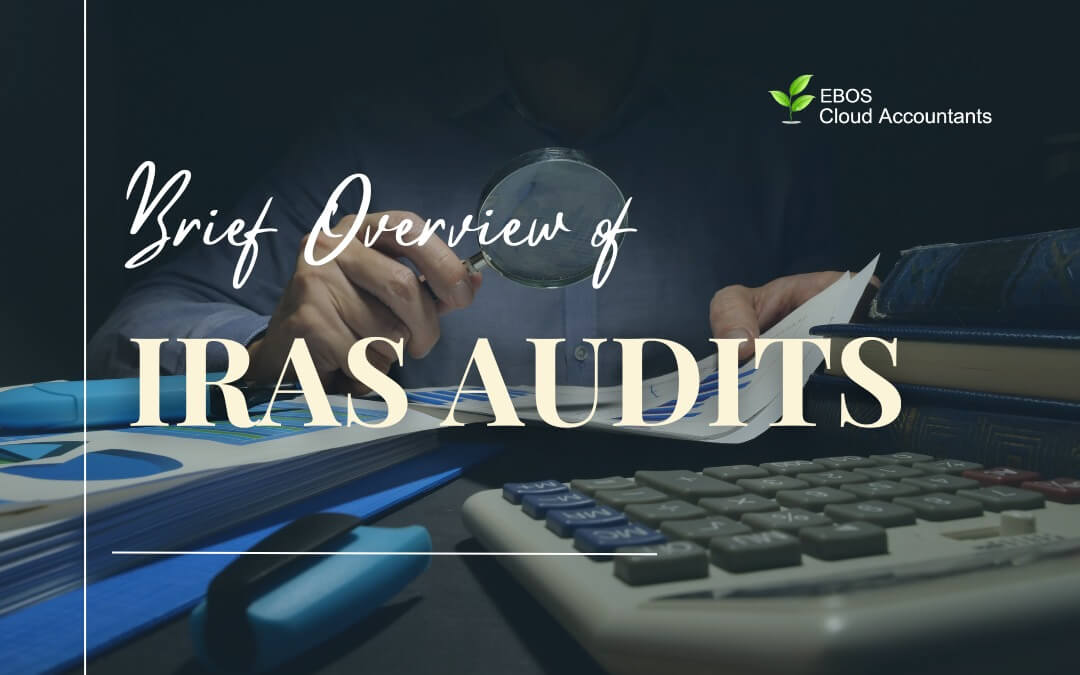Audits include checking the accuracy of the data in the GST return of your company. The audits are carried out using a risk-based methodology. It offers a set of financial statements credibility and assures shareholders that the accounts are truthful and fair.
In this article, let’s talk about the brief summary of audits by IRAS.
Purposes of Audit
The IRAS’s tax audit program has the following goals:
- Ensure that the tax regulations are followed when filing your company’s tax returns;
- Educate your company about its tax requirements and help it to comply;
- Determine whether tax rules, regulations, and procedures may be made clearer or simpler.
Expectations
Verifying that GST has been appropriately accounted for in your business transactions and making sure the data is recorded accurately in your GST filings are both parts of an audit.
This includes figuring out if your supplies are accurately categorized, whether GST was correctly charged and accounted for, whether input tax was correctly claimed, and whether the values of supply, purchases, and taxes stated are accurate.
Audit selection
A wide number of industries are subject to audits. When choosing which companies to audit within a certain industry, they often take a risk-based approach. In order to assess the general level of compliance, they audit companies on a regular basis.
Every case will be fairly assessed by IRAS, which does not presume that a company that has been chosen for audit has committed GST irregularities.
Audit methods and requirements
A telephone interview, a letter, or an email can be used to conduct an audit. Additionally, they may visit your workplace or speak with your key staff.
In the course of our audit, we will require:
- Information about your company (such as details about business contracts or how it is run);
- Listing sales and purchases to check the accuracy of the data in your GST filings;
- Supporting records for your business dealings (such as invoices and export records); and
- Self-review checklists (such as those for bad debt reduction and pre-registration input tax claims) have been completed.
In order to establish the validity of the transactions you disclosed in your GST returns, they might additionally contact your clients, vendors, and/or financial institutions. You can also be asked to give a demonstration of how you enter transactions into the computer system.
Sales and purchases listing
To back up the numbers listed in your GST forms, you should keep track of sales and purchase records. Any one of the following file formats must be used for sales and buy listings submitted to IRAS:
- Listings of Data
- Google Docs spreadsheet
- MS Access database
- Delimited text file, such as a txt or csv
- Other Listings
- A Word document from Microsoft;
- Adobe Acrobat file
Your sales and purchase listings must include the following details:
Sales listings for exempt, zero-rated, and standard-rated supplies:
- Invoice Date
- Invoice Number
- Name of Customer
- Description
- Invoice amount excluding GST ($)
- GST ($) (if applicable)
- Destination of goods (if applicable)
Purchases listings for taxable purchases:
- Invoice Date
- Invoice Number
- Name of Supplier
- Supplier’s GST Registration Number
- Description
- Invoice amount excluding GST ($)
- GST ($) (if applicable)
Taxpayers Duties
During the audit, we will require your cooperation in the following ways:
- Allow them complete access to your facilities, archives, and documents;
- Make a place or workspace accessible for the auditors to undertake the books-and-records examination;
- Permit them to speak with the operational employees or the process owners.
- Permit them to copy and/or extract records and documents;
- Provide fast, thorough, and accurate responses to our information requests; and
- Be sincere and truthful in all of your interactions with them; any irregularities or omissions should be fully disclosed as soon as possible.
Wrap-up
The majority of GST audits are finished in under a year. The audit’s progress is influenced by your business’s complexity as well as the help and collaboration of your tax and business professionals. Assessments may be increased to reflect changes to your reported values, and penalties for unpaid additional tax may be applied.







